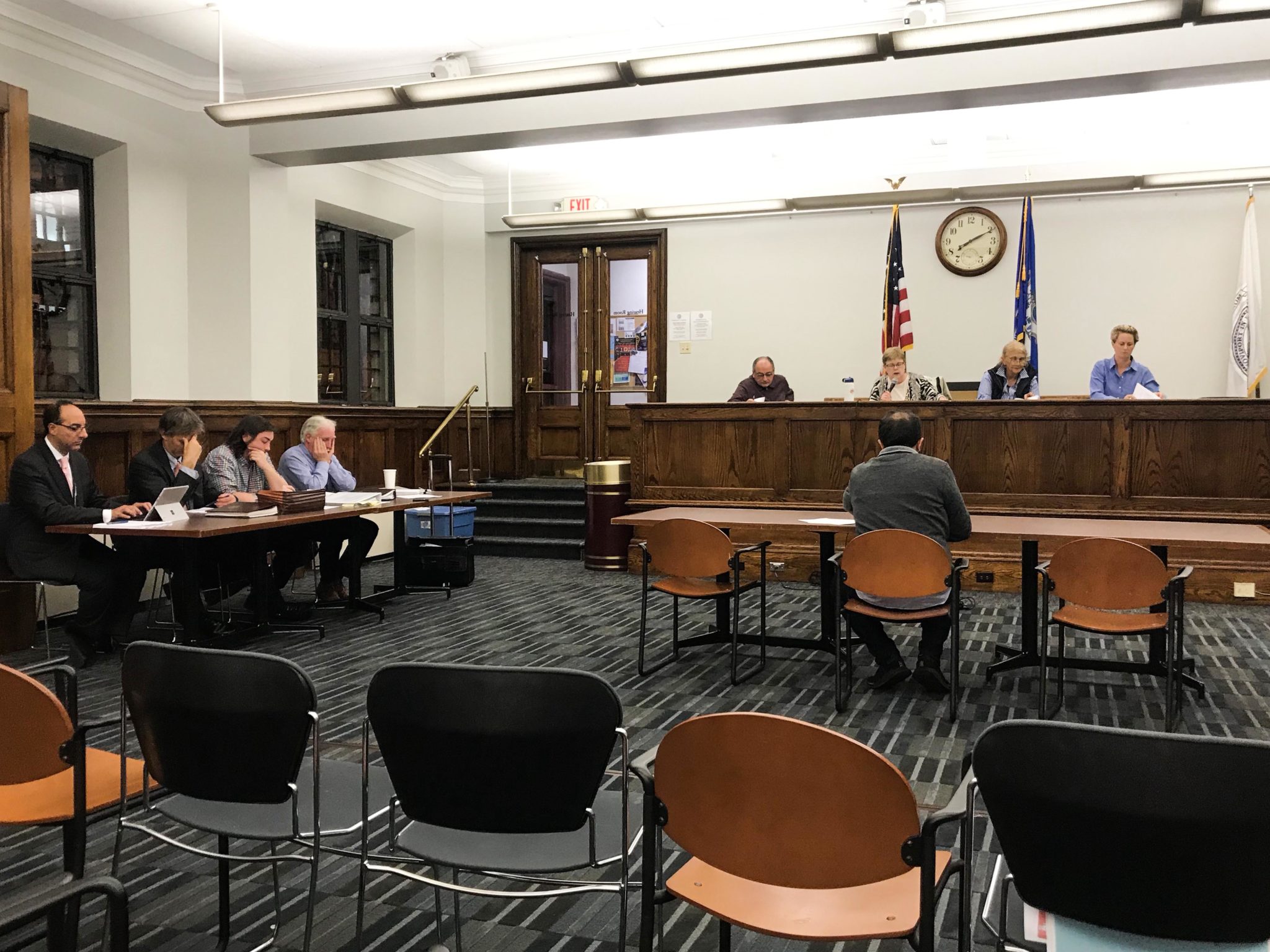
While much of last night’s Board of Zoning Appeals meeting passed by rather smoothly, one key zoning dispute went unheard — the controversial acquisition of church property in Wooster Square by a developer looking to rent out high-end apartments.
The Board of Zoning Appeals convened for its monthly meeting on Tuesday night. Of the eight appeals the board heard, five were approved, one was sent to the City Planning Commission and two were rejected. But in the wake of a city report that did not recommend the approval of a zoning request submitted by St. Michael’s Church Corp., lawyers representing the church withdrew their request for an appeal on Tuesday morning. Representatives from St. Michael’s Church Corp. are currently in the middle of a controversial land acquisition with New York-based developers Netz Group.
The withdrawal of the church’s zoning appeal follows a heated community meeting last week, during which members of the neighborhood criticized Netz Group’s attempts to purchase church property, which the developers intend to convert into high-end apartments.
The St. Michael’s Church Corp. filed a motion for special exception to have just nine on-site parking spots, despite city requirements to incorporate 50 parking spots. The filing is the first of two Board of Zoning Appeals motions that must pass for the developers to execute the acquisition. The second motion, which is yet to be filed, is for an assessor’s map adjustment — the church’s property lines extend toward Greene Street, while the line should extend onto Wooster Street, according to church representatives.
Christopher McKeon, from the New Haven law firm Bershtein, Volpe & McKeon, which represents the church, confirmed the church’s request to remove its motion from the Board of Zoning Appeals agenda on Tuesday. Although he wrote in a letter obtained by the News that church leadership hopes to reapply shortly, he did not explain why it requested to delay the hearing.
In an interview with the News, Deputy Director of Zoning Thomas Talbot said he could not confirm that the church would reapply for next month’s Zoning Appeals meeting. But, he said that he “guesses they will.”
Local residents criticized the developers plans at a meeting with representatives from Netz Group and St. Michael’s Church on Nov. 6.
“What’s going to happen to the neighborhood?” resident Ralph Marcarelli asked at a previous community meeting, according to the New Haven Independent. “What’s going to happen to the church? I happen to disagree with the entire concept.”
Other residents in attendance at the meeting last week expressed similar concerns, emphasizing that 23 new high-end apartments would not only decrease the number of parking spots at the church but also increase traffic and change the fundamental character of the neighborhood. Church representatives argued that selling the property swiftly was necessary to raise funds, and Frank Micali, chief investment officer of Netz Group, said that a minimum number of apartments was necessary for the developers to go through with the project.
Another community meeting addressing the church land acquisition is scheduled for Nov. 20.
Debate over the current Weller Funeral Home at 493 Whitney Ave. in East Rock erupted after Bernard Pellegrino, a zoning lawyer from the Pellegrino Law Firm, announced the property’s potential sale and conversion. In its current state, “over fifty percent of all of (its) funerals are held at the cemetery itself,” according to the Weller Funeral Home website. The Jewish funeral home has a 125-seat chapel space inside for the ceremonies it does host.
Dr. Francine Freeman, the owner of Freeman Chiropractic, is attempting to move her business from 45 Court St. in Wooster Square to the 493 Whitney Ave. location. Pellegrino said she hopes to take advantage of the second-floor offices of the building, according to Pellegrino.
Pellegrino noted that Freeman simply wants to switch the property from its current use as a funeral home, which does not conform to standard zoning code, to another nonconforming use as a medical practitioner’s office.
However, some local residents at last night’s meeting highlighted certain factual inaccuracies presented by Pellegrino, focusing specifically on the odd parking configuration of the property. Houses surrounding the funeral home must keep their driveways open for cars trying to access the parking lot behind the funeral home. Such a rule will still be in effect if the practice is allowed to open on the site. However, the flow of cars will continue throughout the day, not just when there are services.
The residents felt that the new practice would increase the stream of cars during business hours and could have an adverse effect on residents who do not work regular 9-to-5 jobs.
“The funeral home business has had very few funerals. They have had one a month, ” said resident Linda D’albis, who lives at 230 Canner St. and has a driveway that connects to the Weller lot. “I would disagree with Mr. Pellegrino … the impact on the neighbors would be much greater.”
In a rebuttal, both Pellegrino and Freeman offered reasons that increased traffic would not be a problem at the new property. Pellegrino noted that Freeman only opens three times a week and has three other staff on her payroll.
“I am currently functioning with the same amount of parking spaces except I share it with two other law firms upstairs,” said Freeman. “We’ve never had a problem with disorderly traffic.”
The project comes after New York developer MOD Equities was denied the right to purchase the land from the church by the city’s Board of Zoning appeals in 2014.
Nick Tabio | nick.tabio@yale.edu
Jose Davila IV | jose.davilaiv@yale.edu
Interested in getting more news about New Haven? Join our newsletter!







